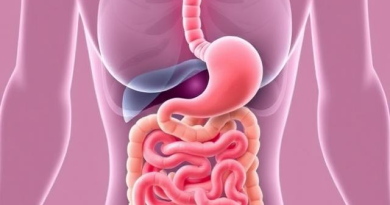The Benefits of a Balanced Diet: How to Eat for Optimal Health in 2025

Maintaining a balanced diet is the foundation of a healthy lifestyle. In 2025, there’s more knowledge than ever about the best food choices to fuel your body for both mental and physical well-being. This post will explore the benefits of a balanced diet and offer practical tips on how to make healthier food choices to improve overall health.
Why a Balanced Diet is Essential
A balanced diet consists of a variety of different foods that provide essential nutrients, including proteins, carbohydrates, fats, vitamins, and minerals. Each of these nutrients plays a vital role in your body’s ability to function properly and stay healthy.
Key benefits of a balanced diet include:
- Maintaining a healthy weight: A well-balanced diet helps control your weight by providing the right amount of nutrients and calories.
- Boosting energy levels: A balanced diet provides consistent energy throughout the day, allowing you to feel more alert and productive.
- Supporting immunity: Essential vitamins and minerals strengthen the immune system, making it easier for your body to fight off infections.
- Improving mental clarity: A diet rich in omega-3 fatty acids, antioxidants, and other nutrients supports brain health and cognitive function.
How to Build a Balanced Diet in 2025
In 2025, nutrition science has made significant strides, and building a balanced diet is more accessible than ever. Here’s a breakdown of the major components of a balanced diet:
1. Eat a Variety of Vegetables and Fruits
Fruits and vegetables are rich in vitamins, minerals, fiber, and antioxidants. Aim to include a variety of colors on your plate to ensure you’re getting a wide range of nutrients.
Tip: Try to fill half your plate with vegetables and fruits at each meal.
2. Include Lean Proteins
Proteins are essential for muscle repair, growth, and immune function. Choose lean sources of protein such as chicken, fish, beans, and legumes.
Tip: Include plant-based proteins like tofu, lentils, and quinoa for added nutritional benefits.
3. Incorporate Healthy Fats
Healthy fats are crucial for brain health and hormone production. Focus on sources of unsaturated fats like avocados, nuts, seeds, and olive oil.
Tip: Replace saturated fats (like those from fried foods) with healthier fats.
4. Choose Whole Grains
Whole grains like brown rice, quinoa, and oats are rich in fiber, which helps with digestion and keeps you full longer. Whole grains also provide B vitamins, iron, and magnesium.
Tip: Swap refined grains like white bread and pasta for whole grains to boost nutritional intake.
5. Hydrate Properly
Drinking enough water is essential for digestion, skin health, and overall well-being. Aim to drink at least 8 cups of water a day, or more if you’re active.
Tip: Start your day with a glass of water and keep a reusable water bottle nearby to remind you to stay hydrated.
Tips for Sticking to a Balanced Diet
- Plan your meals: Plan meals ahead of time to ensure you’re eating balanced and nutritious foods.
- Cook at home: Preparing meals at home gives you more control over ingredients and portion sizes.
- Stay mindful: Listen to your body’s hunger cues and try to eat in moderation.
- Be flexible: A balanced diet doesn’t mean perfection. Allow yourself occasional indulgences to maintain a healthy relationship with food.
Conclusion: Eat Well, Live Well
A balanced diet is one of the most important ways to improve your overall health and well-being. By incorporating a variety of nutritious foods into your diet and focusing on whole, unprocessed options, you can fuel your body for optimal health in 2025. Stay mindful of your food choices, and remember that small changes over time can lead to significant improvements in your quality of life.



